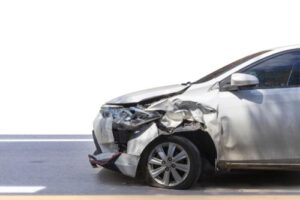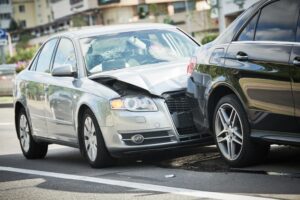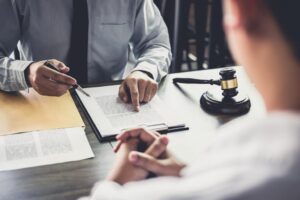
The average person will be involved in between three and four auto accidents throughout their lifetime, according to a Forbes article. In addition, road safety facts show around 2.35 million Americans are injured or disabled in car accidents.
When an accident happens to you, do you know what to do? Most Georgia drivers are not well-versed in what information should be exchanged after a car accident happens.
Georgia has specific laws about what you should do after getting into a car accident. Plus, if you didn’t cause the accident, you may be entitled to damages—but you need to gather information for your claim.
What Information Matters After a Georgia Car Accident?
After a car accident with injuries or property damage, you will need to think legally. This is hard to do in the aftermath of an accident, but it’s important to gather what you can. If the other driver was at fault, it’s especially vital to document the crash and start building evidence for the insurance claim.
The following information matters:
- How the accident happened
- Who was at fault
- What injuries and property damage occurred
- Your total damages
- Insurance information for both you and the other driver(s)
- Picture evidence
- Witness testimony
The more details you have about the accident, the better. When you file a personal injury claim for compensation, you will need to prove that the other driver was at fault and that your damages resulted from the accident they caused. You will also need to get information from the other driver.
Get the strong arm
What Should Be Exchanged with the Other Driver?
After the accident, exchange the following with the other driver(s) involved:
- Full names
- Physical addresses
- Phone numbers
- Insurance company names and policy numbers
- Driver’s license numbers
- License plate numbers
You should also note the year, make, model and color of the other driver’s vehicle. Make a mental note of how the driver looks, too.
Although most drivers have good intentions, some may try to flee the scene, say they don’t want to call the police or avoid giving you their insurance information. This typically means they have something to hide, such as no insurance coverage or a suspended license. Be polite to all other drivers involved, but don’t trust them enough to not get their information.
What Happens if I don’t Exchange Information?
If you don’t get the other driver’s contact information and insurance information, you are trusting that they will take responsibility for the accident and your damages. This is very dangerous, and it means you will probably lose your chance of compensation for your costs.
To file an insurance claim for damages, you will need to driver’s information and proof that the accident occurred. This is hard to demonstrate if you don’t exchange the appropriate information. A driver who is hesitant to give information is likely guilty, and you could end up paying for it by covering your treatment and property damage costs yourself.
Options if You didn’t Get the Other Driver’s Information
If you are reading this after you’ve already left the scene without exchanging information, you may still have the following options:
- Uninsured Motorist Coverage
- Filing a lawsuit
If you didn’t get the insurance information of the other driver, you may be able to file a claim through your own Uninsured Motorist (UM) Coverage. Most drivers have this on their policy unless they specifically opted out. UM coverage covers your damages up to a certain amount when the other driver is uninsured or underinsured.
Filing a lawsuit is mostly a last-resort option after a car accident. However, it may be a good choice in some situations. You should contact a car accident lawyer to discuss the pros and cons of suing the driver for damages.
Do I Need to Report the Car Accident to Police?
Yes, if there are injuries or property damage totaling $500 or more, you should call the police department and report the accident. This is just as important as exchanging information with the other driver and gathering evidence at the scene.
Sometimes, the other driver may encourage you to not report the accident and just handle it between the two of you. Don’t do this—call the police anyway. The insurance company may reject your injury claim if there isn’t evidence of a police report on the accident. It also allows the at-fault driver to leave the scene without their name and information documented in an official report.
Talk to a Car Accident Lawyer in Georgia for Free
If you need assistance with or have questions about what to do after a car accident in Georgia, John Foy & Associates can help. We understand that most drivers are unsure how to approach the moments after a car accident. We can advise you on the best options for your situation—and we have been helping injured drivers win cases for over 20 years.
Contact us today for a FREE consultation or by contacting us online.
404-400-4000 or complete a Free Case Evaluation form





